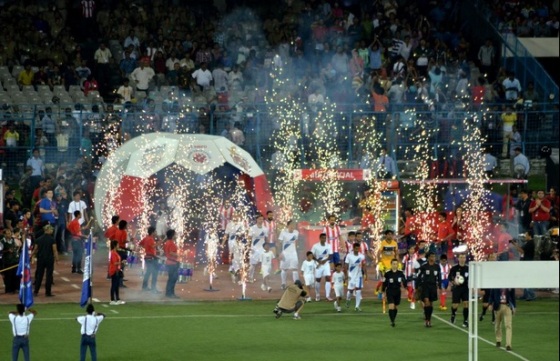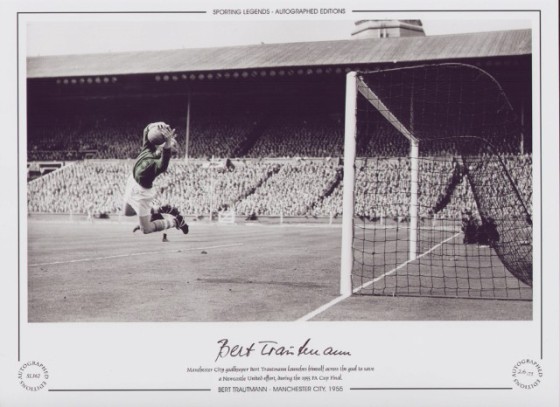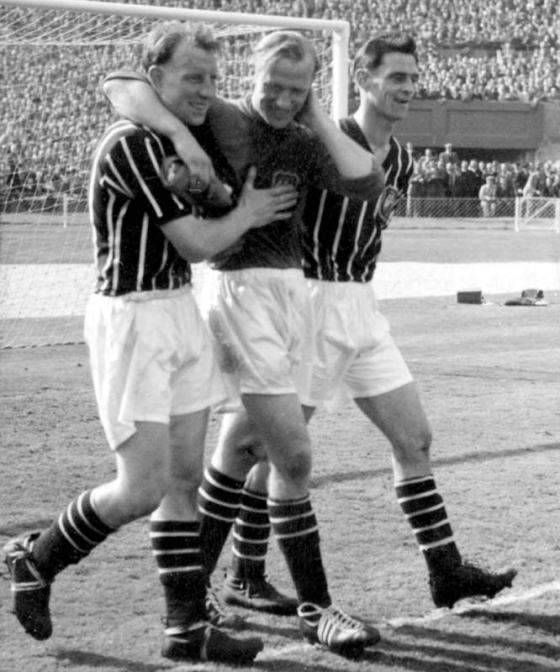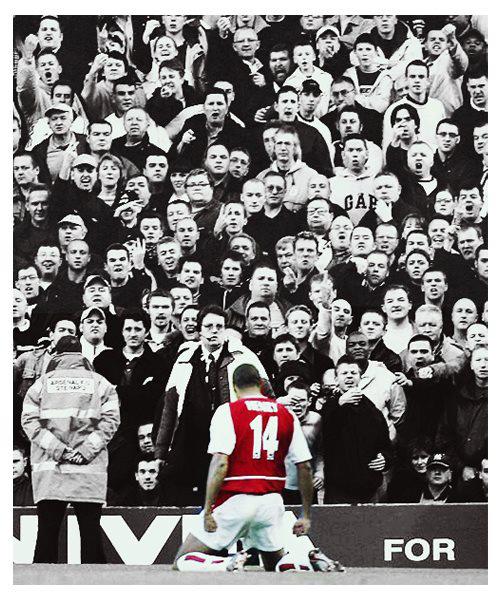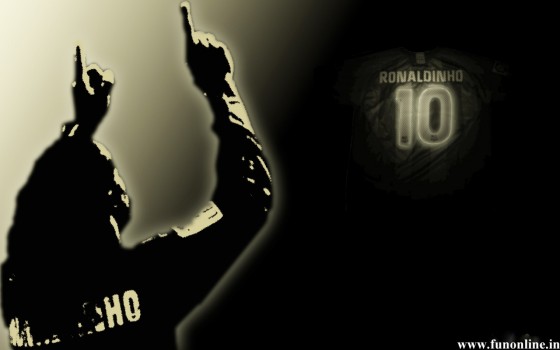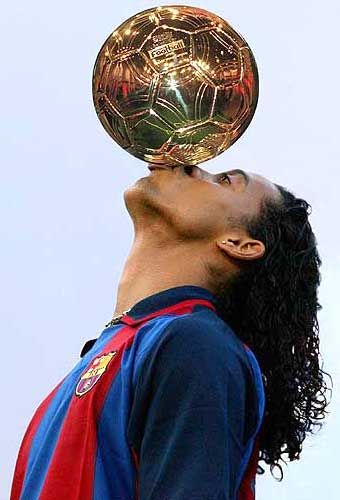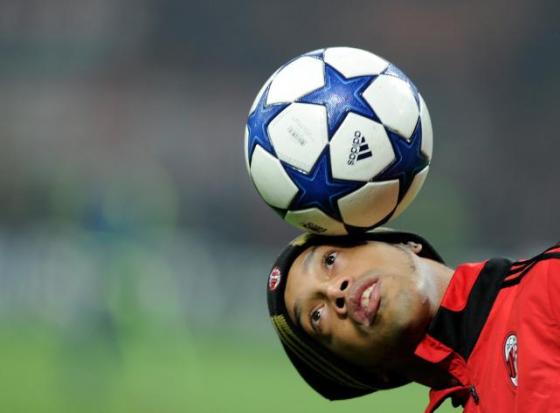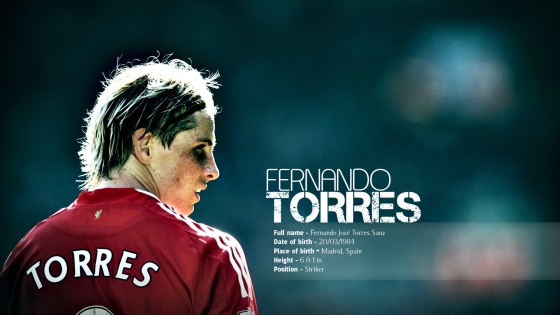The first edition of the Indian Super League kicked off at the Salt Lake Stadium with a tremendous bang. The home of
Atlético de Kolkata was packed with a capacity crowd as almost 80,000 Indians cheered together. And cheer they did, but this time, the cheers were not for the game of Cricket, but for its cousin- Football, which has finally taken off in India!
With a plethora of Bollywood and Cricketing personalities attending the event, there were over 180 million eyes watching the spectacle unfold, both from their seats in the stadium, in pubs with pals, and the confines of their houses. Being busy playing football, I missed the opening ceremony. But I did manage to catch the start off the match.
It began well enough, though it was obvious from the heavy touches and quick break of plays that the Indian players were nervy and feeling the weight of all the eyes on them. The humidity didn’t help matters either. Nevertheless, soon the game settled into its rhythm, with Atlético de Kolkata playing in a manner reminiscent of their parent team – Atlético de Madrid – with their quick fire tempo of passing and counter-attacking coupled with defending deep and breaking play. Nabi, the Mumbai captain got a yellow in the first minute of the game, and that was surely a sign of things to come. The Kolkata offense managed to cut open the Mumbai midfield quiet a few times, especially along the flanks, and would have had a good lead in the opening twenty minutes but for the spectacular keeping by Subrata Paul, showing just why he’s held the number one spot as the Indian goalkeeper for such a long time. Friedrich along with his partner Pavel Cmovs, the Czech made quite a few important tackles to keep the game level.
Soon, Nabi banjaxed his ankle and was replaced, and Mumbai looked a tad more assured on the right side. Stohanzl had a busy game, breaking up the Kolkata plays, winning the ball and moving the game ahead. An assured performance from the lad. The game continued in its staccato manner, with Mumbai trying to slow the tempo while Kolkata continued to rampage ahead in their quickfire style. Luis Garcia showed that he’s still got it, and he means business with some mazy dribbling and brilliantly played through balls which left the opposition gaping a number of times. On one such occasion, he put the Ethiopian Fikru through, only for the striker to be caught offside.
As the game approached the 26th minute, another brilliantly played ball put Fikru through on goal with the defenders nowhere near the striker. As Subrata closed him down and dived to steal the ball, Fikru chipped the keeper and lobbed the ball into the net, a sublime finish and the sweetest of goals the ISL could have begun with. The striker’s ecstatic celebrations showed what the goal meant to him. Soon after the goal, the Mumbai team managed to rally together and get a freekick, only for the powerful shot to be sent straight into the hands of the Kolkata keeper, Roy. Paul was easily the busier of the two keepers as the half approached, and Roy was playing on the emotions of the crowd, egging them on and milking each catch for all it was worth, the lad was truly enjoying his moment in the limelight.
The second half got underway with Kolkata beginning the proceedings, For a while, the game continued in the same vein, Mumbai trying their version of the tika-taka, but without any penetration. The crosses into the Ateltico D were easily held by Roy, while Didika cut a lone and frustrated figure up top. He soon began coming into the midfield to help build plays and shuffle things up, but the lack of an incisive pass hurt the away team. Props to the Kolkata defense for man marking the lone striker out, while covering the full back positions impressively as well. The introduction of Andre Moritz added some fire and Brazilian panache to the Mumbai gameplay. Just as it looked like Mumbai would sneak in an equalizer from somewhere, Subrata Paul made a hash of a clearance – he probably wasn’t too keen on getting close to Fikru after being kneed in the head just moments ago. From the ensuing corner, the Mumbai defender made a weak clearance. The ball flew to the Borja Fernandez, the former Real Madrid man, who chested it down and showed impressive technique to half volley it into the top right corner – an absolute belter of a goal. A screamer if I’ve ever seen one. The keeper had no chance with that one and the age old words came to mind, “He’s never gonna strike the ball as sweetly as that again”. Of course, with the league in just its initial stages, he may turn those words on their head and provide a repeat performance. Who knows?!
With the goal, the Mumbai hopes were drowned as well. Ralte, Bhutia and Moritz tried to rally the team, but it was too little too late. Mumbai did get a number of free kicks in dangerous positions, but they barely managed to trouble the keeper. Other than a speculative shot from distance, which was deflected off the head of an Atletico defender, resulting in an instinctive save from Roy, who showed great reflexes to pluck the ball out of the air, and a header which was hit point blank at Roy again, Mumbai didn’t do much to threaten. A few good moves and dribbles would have made it through, but the Kolkata line of defense proved too strong, and the the last man would always win the ball back, or make a solid clearance. There was another hairy moment, when Garcia put in a spectacular cross, only for the ensuing header to be again saved point blank by Subrata Paul. Stohanzl made some crucial interceptions and tackes as well.
Then, Luis Garcia was replaced by fellow countryman Arnal Llibert, who got the armband. Kolkata were happy to pass the ball around, while other than a wayward shot by Peter Costa and crosses from Raju Gaikwad- who was lucky to still be on the field- which were easily caught by Subhashish Roy, Mumbai didn’t have much to offer. The absence of their marquee players had hurt them a lot. Anelka’s presence, both as a target man and a finisher would have made a world of difference, along with Freddie’s assured displays on the wings.
Of course, the script for this one couldn’t have been any different, as with what was almost the last play of the game, a beautifully weighted ball from the right flank was put perfecty beyond the reach of both Cmovs and Friedrich, and into the path of the onrushing Llibert, who had charged 60 yards to meet the ball. With a simple touch, he put it beyond the reach of Subrata Paul, who was left to pick the ball out of his own net for the third time that night. The game ended 3-0 in favour of Atlético de Kolkata, and a mexican wave of over 80,000 fans rocked the stadium once more!
All in all, an assured display by Kolkata in all parts of the pitch, and they’ve put down their credentials as potential champions.
Mumbai City FC now have a week to lick their wounds before the Maharashtra Derby, where they face FC Pune City. They have it all to do in the next week, and Peter Reid is sure to make them work on their penetration, composure on the ball, and final ball.
A great night for Indian football, one from which they are sure to learn a lot, especially about dealing with in-game nerves, jitters, and the importance of being calm on the ball. The telecast was on par with International leagues, while the commentators provided an enjoyable match and added to the enthralling atmosphere, and were much better than those seen in the Italian and Spanish leagues. There’s plenty to look forward to in the next few months, and Indian Football and footballers are sure to benefit and gain much needed exposure from this league.
Onto tomorrow now, lads. Let’s football!

